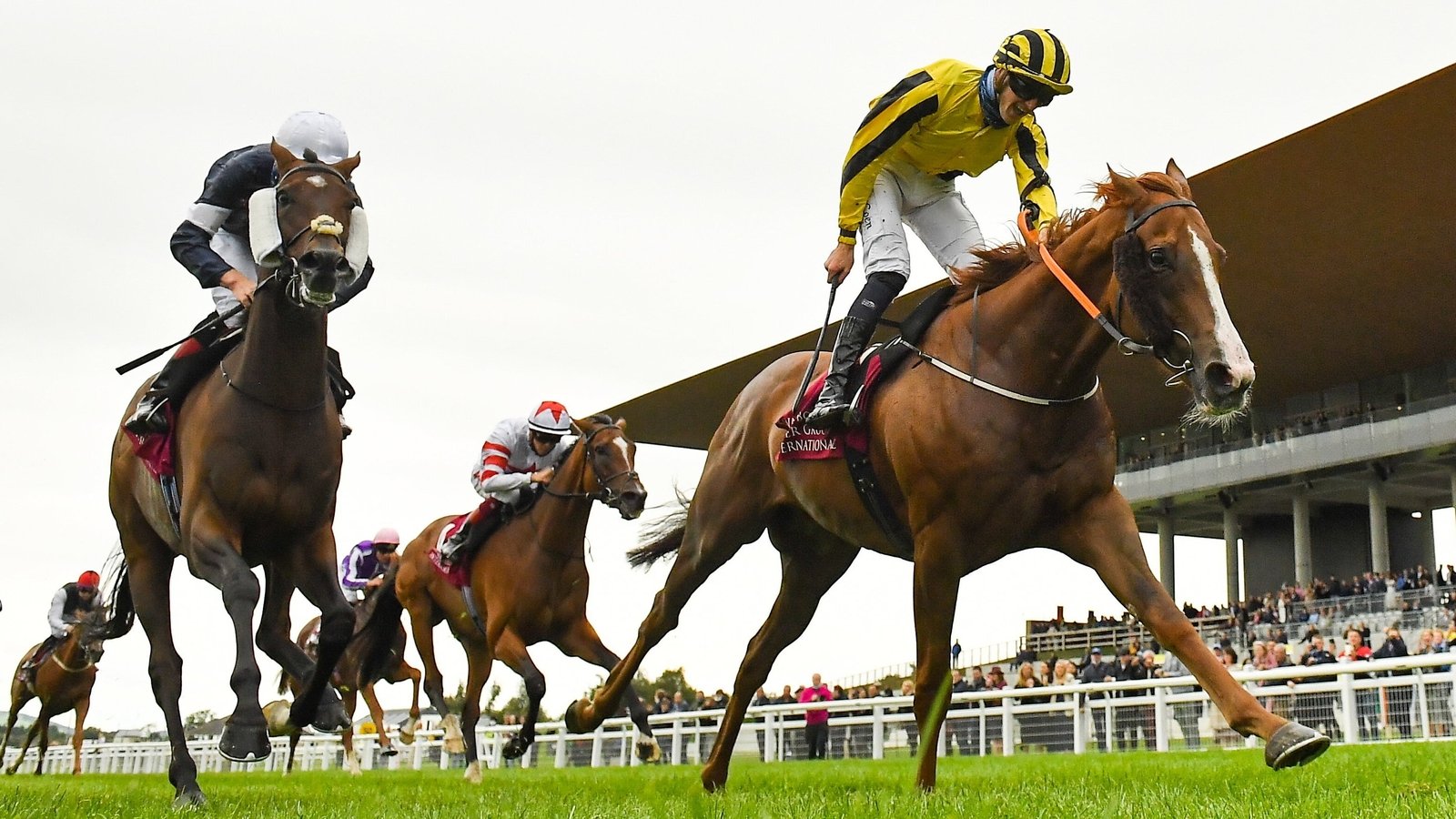
More than €42m in public funds was paid out in prize money at horse races last year.
Horse Racing Ireland projects that a similar amount will be paid out across 390 racing fixtures this year.
The owners of racehorses who win the prize money do not have to pay tax on income earned from prizes, however trainers and jockeys are subject to taxation.
The organisation which governs the sport of horse racing said prize money stimulates investment and drives rural economic activity.
Horse Racing Ireland said prize funding “impacts the sale of Irish horses and the decision to keep horses in training in Ireland.
“The activity of training thoroughbred racehorses is very labour intensive and, therefore, the greater the number of horses in training in Ireland, the greater the employment and economic impact.”
The amount of public money paid out in prizes increased by €7.8m last year compared to 2020, when racing was curtailed due to the Covid-19 pandemic.
The figures were supplied to People Before Profit TD Paul Murphy, who asked why so much money was allocated to a “lucrative, predominantly private industry, in a free-market economy which should be able to support itself”.
The horse-racing industry receives financial support from the State through the Horse and Greyhound Racing Fund, with €72.8m having been allocated to support Horse Racing in 2023, 80% of which can be applied to prize money.
Horse Racing Ireland said “prize money is the subject of competition internationally, particularly at the higher level where we’re seeking to attract horses to compete here”.
“Flat racing is a global sport with the same horses competing in a series of top-level races around the world,” the organisation added.
The owners of racehorses get 72% of the winnings, with 10% going to trainers and jockeys, and 8% for other causes including to stable staff, charities and industry organisations.
This means that more than €30m of public money was paid to racehorse owners last year, for which they did not have to pay income tax.
The race meeting which attracted the biggest contribution of public money last year was the Irish Champions Weekend in September.
The prize money on offer across the 16 races at the Curragh and Leopardstown totalled €4.75m, with just over €2m of this being public funds allocated by HRI.
HRI said a Deloitte report in 2017 estimated that the racing and breeding industry in Ireland directly and indirectly supports 29,000 jobs.
It said the industry produces more than €1.84bn in total expenditure annually.
Speaking on RTÉ’s This Week, Mr Murphy said the bottom line is that there is a huge transfer of public funds “to a small number of already very wealthy multi-millionaire or billionaire horse owners”.
He said latest figures for 2021 show that the top four winners were JP McManus, Michael O’Leary, John Magnier and Michael Tabor – “they get that money tax free, transferred from the taxpayer”.
In relation to sporting funding, Mr Murphy said the total core funding for all sports organisations in Ireland such as the FAI, GAA, Athletics Ireland, Swim Ireland the Special Olympics amounts to €15m.
“And yet here we are giving €70m a year to an already very wealthy industry.”
Speaking on the same programme, Minister for Agriculture Charlie McConalogue said the €70m which the Government invests every year is “money that is very well invested in an industry which overall contributes about €1.84bn to the Irish economy”.
Mr McConalogue said that about 30,000 people are employed through the industry.
“It’s one of the industries and sectors that we are world leading in. We compete with any country around the world in relation to it and it has been built up over the years by virtue of the tremendous capacity and skills we have in this country in relation to horsemanship but also by very committed public policy and investment to get it to the stage where is it at,” he said.
Asked why an industry capable of contributing nearly €2bn a year to the economy needs taxpayers to pay up to 80% of its prize money, the minister said: “Because we are competing in an international sector, so some of our biggest competitor countries, for example Britain, France, the US and Australia – in all of those countries either directly or indirectly there is also government investment which underpins the sector and drives the sector.
“So, it’s really important from a Government point of view that we continue to be world leading.”
Mr Murphy said that the horseracing industry should be able to fund “as happens in most countries” its own prize money through sponsorship.
Asked why horse owners do not have to pay tax on their winnings, Mr McConalogue said: “In terms of winnings, it’s a loss-making industry for those who take part in it. It’s by and large a hobby which actually costs those who are involved in it.”
He said that if tax was applied, then “you would also have to apply for tax to be deducted where there are losses and overall, that would cost more to the taxpayer and the Revenue”.
The minister also said that the majority of the funding stays within the country.
“When you look at our sector overall, just 3% of the total prize money in the country actually goes outside of the county to non-Irish trained horses so that shows that the funding is actually staying within the country.”
Mr Murphy reiterated his position that the Government is giving €70m a year to horse racing while “we are in a cost-of-living crisis”.
“I don’t think it’s justifiable at any time, I think particularly given the cost-of-living crisis it’s completely unjustified,” he said.
Public funds used for €42m horse racing prizes in 2021
Source: Viral Trends Report


0 Comments